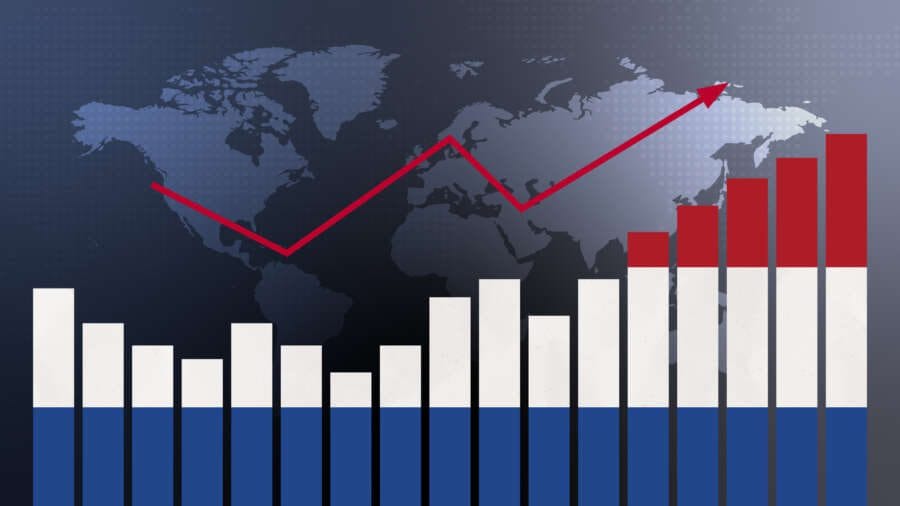
Investing in the Dutch stock market: Opportunities and risks
The Dutch stock market, known for its historical significance and vibrant trading environment, offers investors a range of opportunities to grow their wealth. However, like any investment market, it also carries certain risks. Understanding the opportunities and risks associated with investing in the Dutch stock market is crucial for investors looking to make informed decisions. This article provides insights into the potential opportunities and risks of investing in the Dutch stock market.
The Dutch stock market: A hub of opportunities
The Dutch stock market, represented by Euronext Amsterdam, presents investors with many opportunities to capitalise on diverse industries and companies.
One of the key advantages of the Dutch stock market is its international orientation. The Netherlands has a robust global presence, with many multinational corporations and renowned companies calling it home.
Investing in Dutch stocks exposes investors to companies with global reach, diverse revenue streams, and strong market positions. International exposure can provide stability and potential growth opportunities for investors.
The Dutch stock market also offers opportunities in technology, renewable energy, and healthcare sectors. The Netherlands has a thriving tech ecosystem, attracting innovative startups and established tech companies.
The country’s commitment to sustainability and renewable energy also presents investment prospects in the growing green energy sector. Furthermore, the healthcare industry in the Netherlands has witnessed advancements and opportunities driven by a focus on research, development, and high-quality healthcare services.
Market volatility and risk considerations
While the Dutch stock market offers opportunities, investors must also be aware of the potential risks and market volatility that come with investing.
Market volatility is an inherent characteristic of stock markets, including the Dutch stock market. External factors such as economic conditions, geopolitical events, and market sentiment can influence stock prices, leading to fluctuations in the market. Investors should be prepared for short-term price swings and understand that investing in stocks involves a certain level of risk.
Company-specific risks also exist when investing in individual stocks. Factors such as financial performance, competitive landscape, management quality, and industry trends can impact the performance of individual companies. Conducting thorough research and analysing individual stocks is essential to mitigate these risks and make informed investment decisions.
Regulatory environment and investor protection
The Dutch stock market operates within a well-regulated framework to ensure transparency and protect investor interests.
The Dutch Authority for the Financial Markets (AFM) is the primary regulatory body overseeing the Dutch stock market. The AFM enforces rules and regulations to maintain fair and orderly markets, safeguard investor protection, and ensure companies adhere to disclosure requirements. The regulatory environment provides a level playing field for investors and enhances market integrity.
As the stock exchange operator, Euronext Amsterdam also plays a crucial role in maintaining market integrity and transparency. Euronext establishes listing requirements, monitors trading activities, and ensures compliance with market rules. This oversight helps foster investor confidence and contributes to the overall stability of the Dutch stock market.
Diversification and long-term perspective
Diversification and a long-term perspective are crucial when investing in the Dutch stock market to manage risks and optimise returns.
Diversification involves spreading investments across different companies, sectors, and asset classes. By diversifying their portfolios, investors can mitigate the impact of individual stock fluctuations and reduce overall portfolio risk. This strategy can be achieved by investing in a mix of Dutch and international stocks and other asset classes, such as bonds and real estate.
A long-term perspective is critical to successful investing in the Dutch stock market. Short-term volatility and market fluctuations may occur, but by focusing on long-term trends and the fundamentals of the companies you invest in, you can benefit from the market’s growth over time.
Patience, discipline, and a focus on long-term goals can help investors navigate the ups and downs of the stock market. If you’re unsure about your trades or need some help don’t be afraid to contact a professional such as Saxo broker to assist you.
With that said
Investing in the Dutch stock market offers investors many opportunities to grow their wealth. However, it is essential to consider the associated risks and market volatility. By understanding the opportunities, conducting thorough research, diversifying portfolios, and adopting a long-term perspective, investors can confidently make informed decisions when trading the Dutch stock market.
Staying updated with market trends, being aware of regulatory frameworks, and seeking professional advice when needed can further enhance investment outcomes. With diligent planning and a disciplined approach, investors can harness the opportunities while managing the inherent risks of the Dutch stock market.


